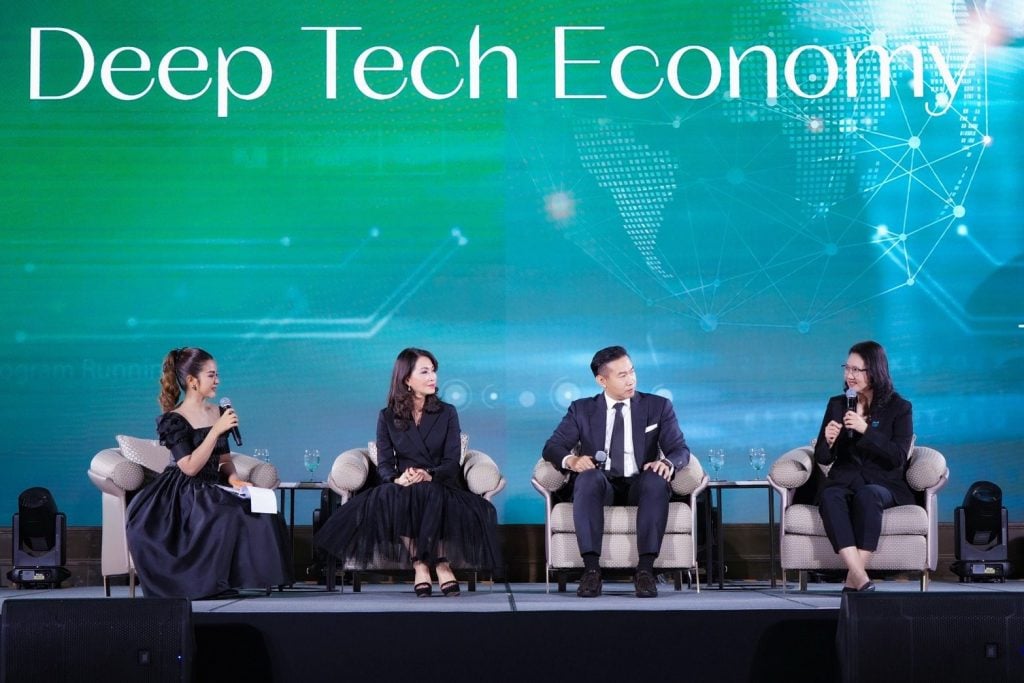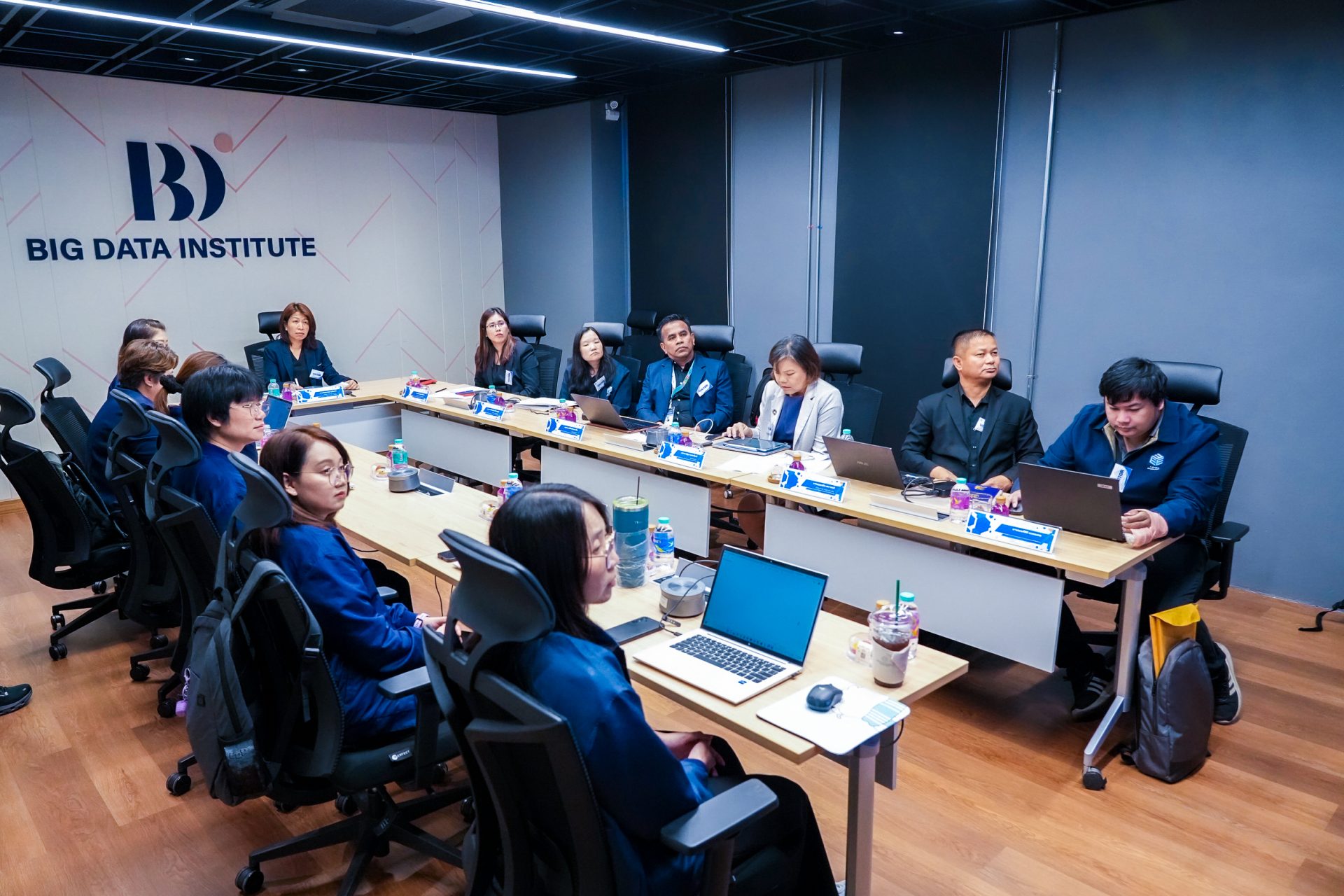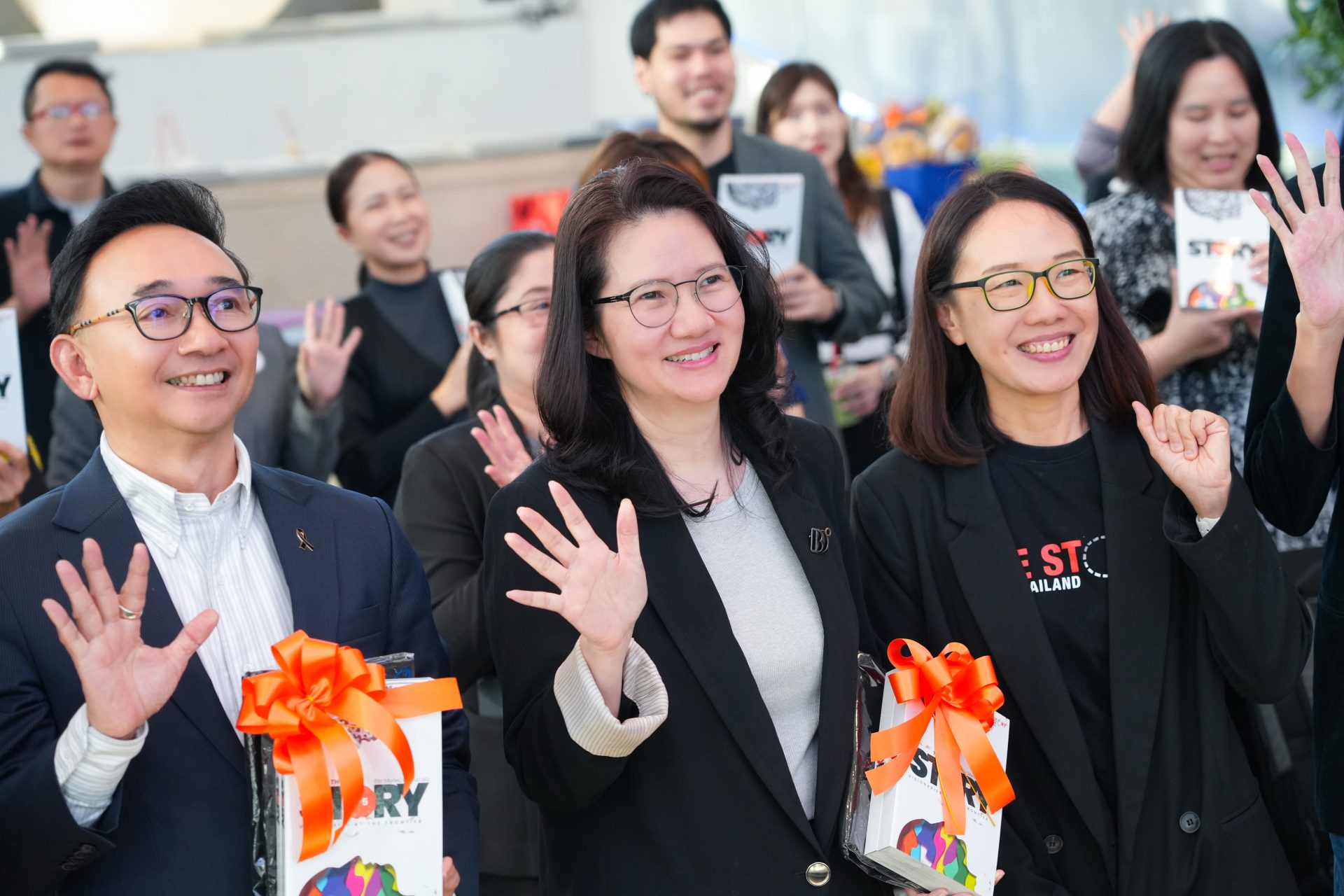27 ตุลาคม 2568, กรุงเทพฯ – ศ. ดร.ธีรณี อจลากุล ผู้อำนวยการสถาบันข้อมูลขนาดใหญ่ (BDI) ร่วมเสวนาในงาน THAIRATH FORUM 2025: The Next New Economy บนเวที “Deep Tech Economy” ณ โรงแรมอีสติน แกรนด์ พญาไท โดยกล่าวถึงบทบาทของข้อมูลในฐานะทรัพยากรยุคศตวรรษที่ 21 ที่จะเป็นพลังขับเคลื่อนเศรษฐกิจไทยสู่ยุคใหม่ พร้อมชี้ว่า “การสร้าง Soft Infrastructure” คือกุญแจสำคัญสู่การบรรลุเป้าหมาย Quick Big Win ของประเทศ โดยภายในงานได้รับเกียรติจากคุณเอกนิติ นิติทัณฑ์ประภาศ รองนายกรัฐมนตรี และรัฐมนตรีว่าการกระทรวงการคลัง มาร่วมแสดงวิสัยทัศน์

ผอ.BDI กล่าวว่า หากประเทศไทยสามารถบูรณาการข้อมูล (Data Integration) ระหว่างหน่วยงานภาครัฐและเอกชนได้อย่างเป็นระบบ จะเกิดผลลัพธ์เชิงเศรษฐกิจและสังคมในหลายมิติ เช่น ภาคสาธารณสุข สามารถใช้ Big Data ลดภาระงบประมาณ, ภาคการท่องเที่ยว ใช้ข้อมูลพฤติกรรมนักท่องเที่ยวเพื่อวางนโยบายอย่างแม่นยำ และภาคเกษตร ใช้ข้อมูลพยากรณ์ผลผลิตเพื่อลดความเสี่ยงจากภาวะล้นตลาดหรือขาดแคลนสินค้า ทั้งหมดนี้จะเกิดขึ้นได้จากการเชื่อมโยงข้อมูลอย่างเป็นระบบและต่อเนื่อง
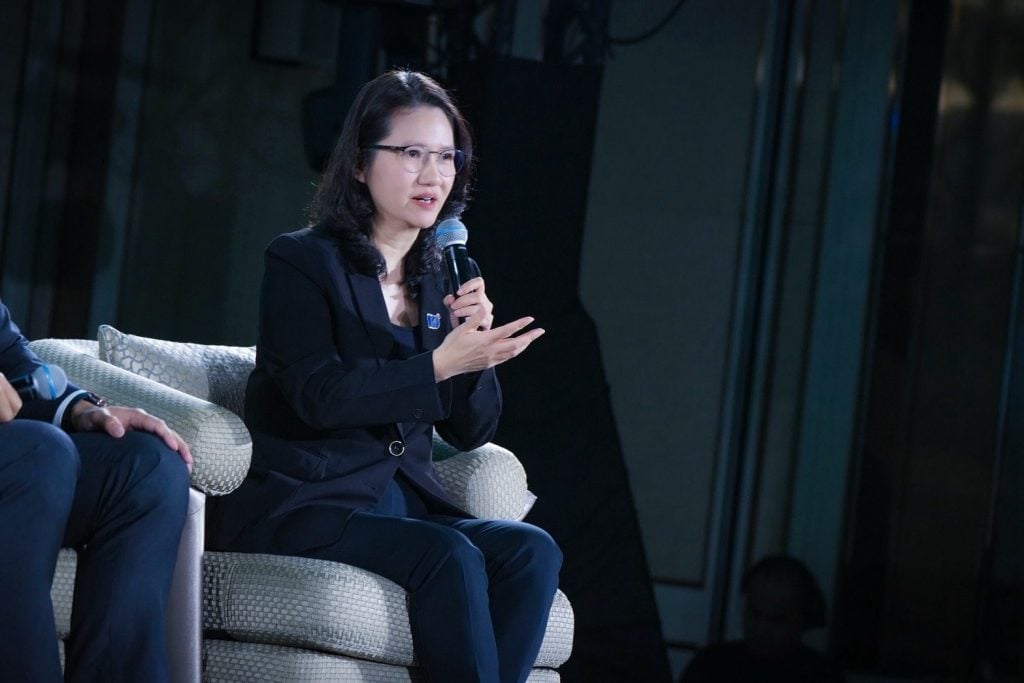
ศ. ดร.ธีรณี อธิบายอีกว่า “Unique Data Asset” คือข้อมูลที่เข้าถึงยากแต่สามารถใช้ประโยชน์ได้จริง โดยประเทศไทยมีจุดแข็งอย่างมากในด้าน “ข้อมูลภาครัฐ” ไม่ว่าจะเป็นข้อมูลความมั่นคง การท่องเที่ยว หรือ Mobility Data ซึ่งถือเป็นทุนข้อมูลสำคัญที่ต่างประเทศไม่มี แต่ปัจจุบันข้อมูลเหล่านี้ยังไม่ถูกรวมเป็นระบบเดียว และยังเปิดให้ภาคเอกชนเข้าถึงได้ในวงจำกัด ทำให้ไทยยังเสียเปรียบเมื่อเทียบกับแพลตฟอร์มระดับโลกอย่าง e-commerce หรือ OTA ที่มีข้อมูลผู้บริโภคในเชิงลึก
ผอ.BDI ย้ำว่า “Quick Win ที่แท้จริง” จะเกิดขึ้นได้เมื่อรัฐและเอกชนมีการแชร์ข้อมูลร่วมกันอย่างปลอดภัยและโปร่งใส (Trusted Data Sharing) พร้อมผลักดันให้เกิดการลงทุนในระบบ AI for Policy เพื่อใช้ข้อมูลสนับสนุนการตัดสินใจเชิงนโยบาย ลดการตัดสินใจจากสมมติฐานหรือประสบการณ์ส่วนบุคคล และเปลี่ยนการบริหารภาครัฐให้ขับเคลื่อนด้วยข้อมูลอย่างแท้จริง
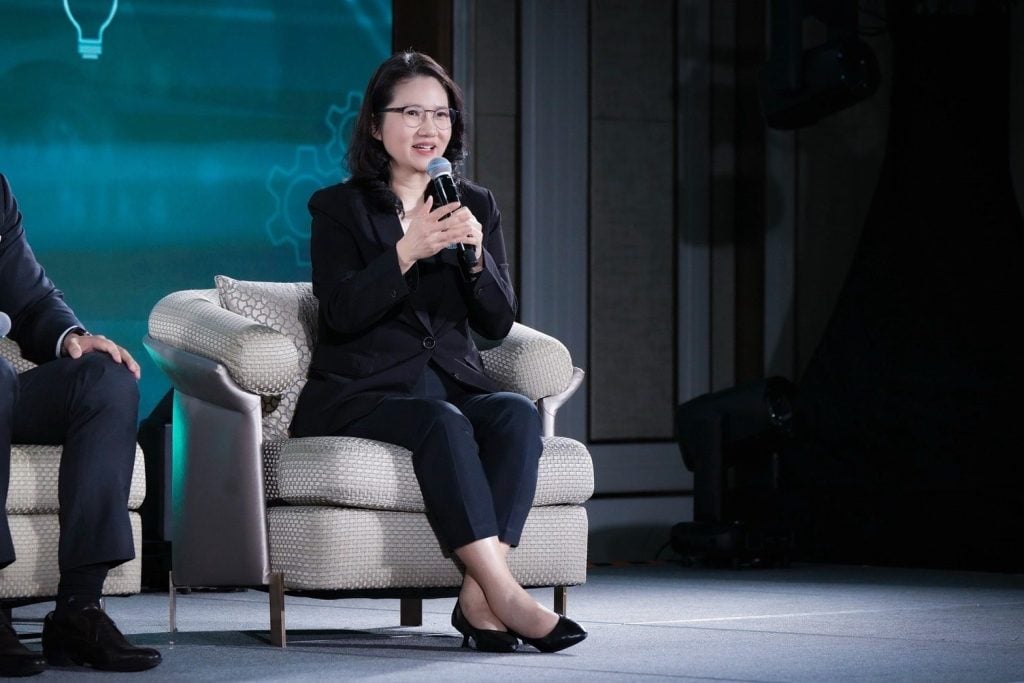
หนึ่งในตัวอย่างความสำเร็จที่สะท้อนภาพดังกล่าว คือ แพลตฟอร์ม Trave Link Dashboard ที่บูรณาการข้อมูลตรวจคนเข้าเมืองเข้ากับข้อมูลจากผู้ให้บริการเครือข่ายโทรศัพท์มือถือ เพื่อนำมาวิเคราะห์เส้นทางและพฤติกรรมนักท่องเที่ยวแบบเรียลไทม์ ช่วยให้หน่วยงานรัฐและผู้ประกอบการสามารถออกแบบแผนการตลาดและกิจกรรมท่องเที่ยวได้อย่างแม่นยำ ตัวอย่างเช่น ห้างสรรพสินค้าในจังหวัดภูเก็ตที่นำข้อมูลจาก Dashboard ไปใช้ปรับสินค้าให้เหมาะกับกลุ่มนักท่องเที่ยวตะวันออกกลาง จนสามารถเพิ่มยอดขายได้อย่างเป็นรูปธรรม
นอกจากนี้การสร้าง People Infrastructure ที่ต้องเดินควบคู่กับ Demand Pool โดยก่อนจะเร่งผลิตบุคลากรด้านเทคโนโลยี จำเป็นต้องสร้างความต้องการใช้งานจริงในภาคธุรกิจ ทั้ง SMEs และองค์กรขนาดใหญ่ เพื่อให้การพัฒนากำลังคนสอดคล้องกับตลาด พร้อมเสนอให้ภาครัฐใช้มาตรการ Reskill-Incentive ทั้งทางภาษีและนอกภาษี เพื่อกระตุ้นให้ภาคเอกชนนำ AI มาใช้เพิ่มประสิทธิภาพโดยไม่ลดการจ้างงาน ซึ่งจะทำให้การเปลี่ยนผ่านสู่เศรษฐกิจ AI ของไทยเกิดขึ้นอย่างทั่วถึงและยั่งยืน
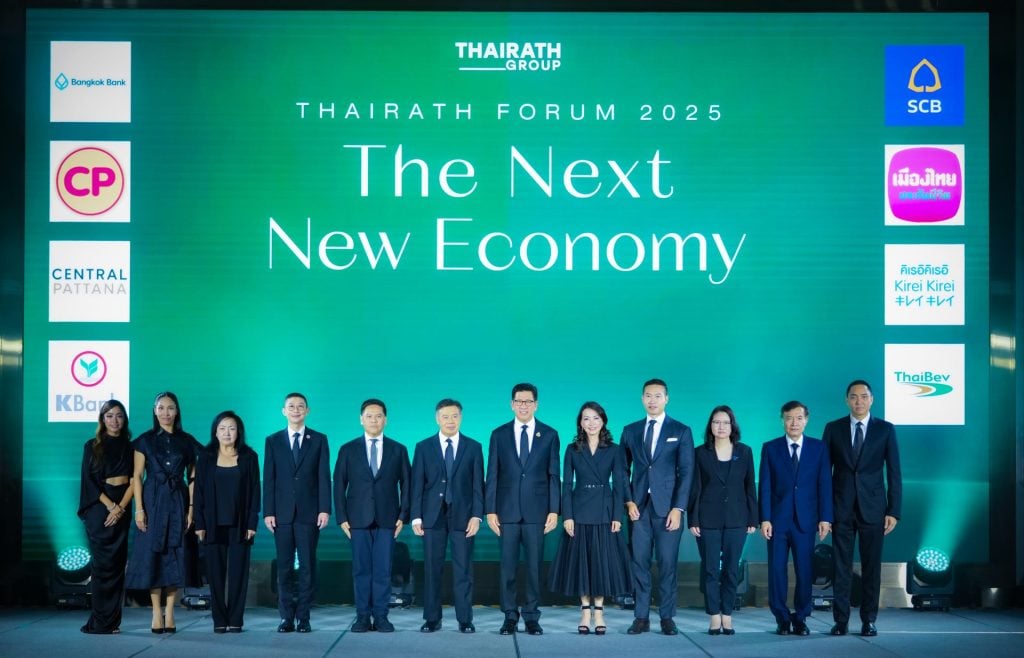
สำหรับเวทีเสวนา “Deep Tech Economy” ภายในงาน THAIRATH FORUM 2025: The Next New Economy ยังได้รับเกียรติจาก คุณจรีพร จารุกรสกุล ประธานกรรมการและประธานเจ้าหน้าที่บริหาร บริษัท ดับบลิวเอชเอ คอร์ปอเรชั่น (มหาชน) และ คุณพชร อารยะการกุล ประธานเจ้าหน้าที่บริหาร บริษัท บลูบิค กรุ๊ป (มหาชน) ร่วมแลกเปลี่ยนมุมมองต่อบทบาทของเทคโนโลยีขั้นลึก (Deep Tech) ในการยกระดับขีดความสามารถในการแข่งขันของประเทศเติบโตอย่างมีทิศทาง
Public Relations and Communication Specialist
Big Data Institute (Public Organization), BDI
- Narisara Boonsrihttps://bdi.or.th/en/author/narisara-bo/
- Narisara Boonsrihttps://bdi.or.th/en/author/narisara-bo/
- Narisara Boonsrihttps://bdi.or.th/en/author/narisara-bo/
- Narisara Boonsrihttps://bdi.or.th/en/author/narisara-bo/


